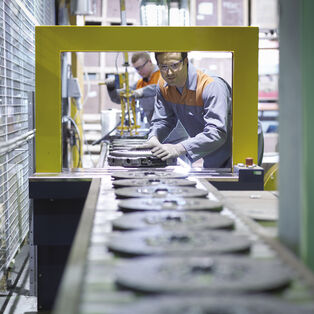The VIII Eastern Economic Forum Results
20 September 2023
The VIII Eastern Economic Forum (EEF) took place in Vladivostok on September 10-13.
This year’s business program was intense and included about 100 events with more than 700 speakers and moderators particiapting, analyzing the world market and the global economy. The theme of the EEF was “Towards Cooperation, Peace and Prosperity”. In total, the forum received representatives from 62 countries and territories and became a platform for negotiations between representatives of the business circles of Russia and Asia-Pacific countries: the development of cooperation and the implementation of joint projects was discussed by participants in the business dialogues “Russia — ASEAN”, “Russia — India”, “Russia — China”, "Russia — Mongolia", "Russia — the Philippines".
As usual, logistics became one of the cross-cutting topics of the forum program. The agenda considered key areas and priorities of the industry: the development of the Eastern polygon and the Northern Sea Route as the most promising ways to ensure Russia's leadership in the trade sector, new opportunities for trade in the Asia-Pacific region, railway and sea logistics, large-scale transport and infrastructure projects.
The economic turn to the East in connection with the current geopolitical situation gave impetus to the development of the logistics life of the macroregion. This is evidenced by the indicators for the first 7 months of 2023: cargo turnover with Asian countries amounted to 420 million tons, which is 45% more than last year; the increase in value was 22%. The share of Asian countries in total trade turnover is 76% in terms of cargo turnover and 68% in terms of value.
The rapid growth of cargo turnover and the strengthening of trade and economic ties with the countries of the South and East have become catalysts for the development of logistics capacities. Forum participants identified the key challenges and priorities facing the logistics industry in this region:
- modernization and expansion of infrastructure;
- eliminating the imbalance between port capacities and the capabilities of railway access routes;
- technological growth for the development of heavy-haul transport by rail;
- digital solutions for the logistics industry, multimodal electronic document flow with partner countries, electronic navigation seals and electronic queues at border crossings to improve operational efficiency and manageability;
- development of a new global trade artery - the Northern Sea Route (NSR) - with the aim of forming an international route, increasing the sustainability of global supply chains, as well as integrating the Arctic and Far Eastern regions of Russia into the world trade system.
On the sidelines of the Forum, 373 agreements were signed for a total amount of 3.8 trillion rubles. The largest projects were concluded by the Amur Region — 173 billion rubles, the Trans-Baikal Territory — 76 billion rubles, the Khabarovsk Territory — 72 billion rubles and Primorye — 56 billion rubles.
The key trends of EEF 2023:
- Results of ten years of development of the Far East.
- The Far East is the key to new logistics.
- Strengthening Russia as a technological power.
- Integration associations are a factor of sustainability.
- Tourism as the basis of a new image of the Far East.
- Infrastructure for young patriots.
General Director of GEFCO Russia Valeria Seledkova took part in the business program and plenary session of the forum, and also held a number of meetings with the management of large Russian companies from the energy, oil and gas, chemical and engineering industries, reaching several agreements.
More about GEFCO Russia
![[Translate to English:] Инфографика о ВЭФ](/fileadmin/_processed_/b/8/csm_VEF_infographics_e7b517797b.jpeg)
![[Translate to English:] Инфографика о ВЭФ](/fileadmin/_processed_/b/8/csm_VEF_infographics_20846f54c4.jpeg)


